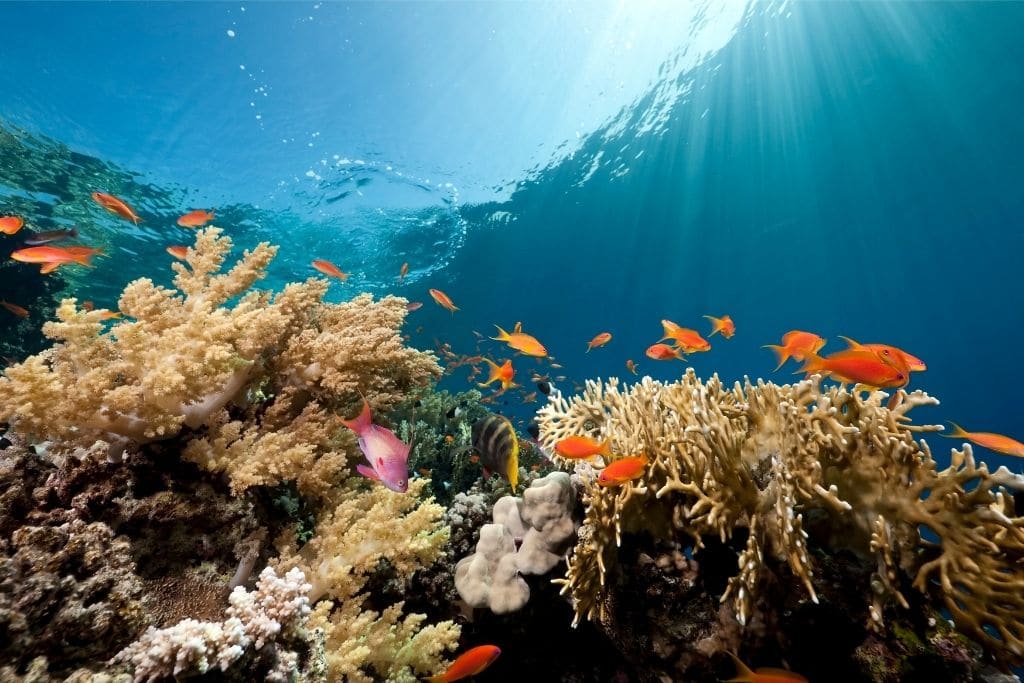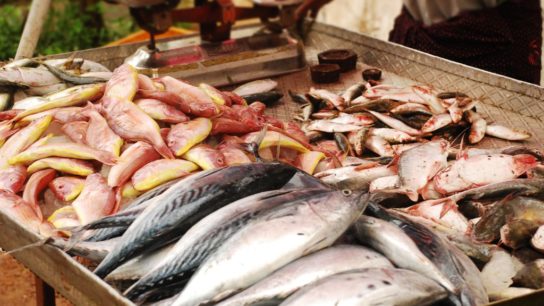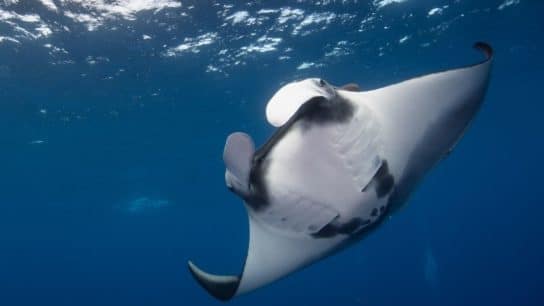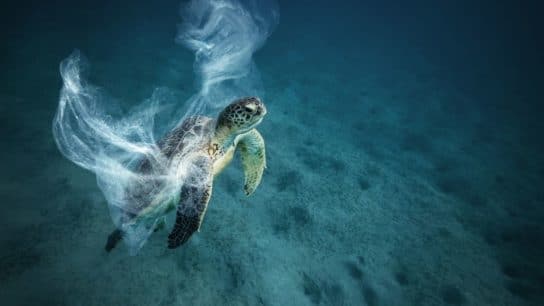“We protect what we love – but to truly love, we must first understand. When it comes to the ocean, a deeper understanding begins with ocean literacy,” writes Peter Thomson, United Nations Secretary-General’s Special Envoy for the Ocean.
—
By Ambassador Peter Thomson, UNSG’s Special Envoy for the Ocean
Ocean literacy is fundamental to human security on Earth as it paves the way for a future in harmony with nature. Yet, our scientific understanding of the ocean remains alarmingly incomplete – a critical gap given that 90% of the biosphere’s living space exists within the ocean. This lack of knowledge is unacceptable on a planet so deeply dependent on the health of its marine ecosystems.
We protect what we love – but to truly love, we must first understand. When it comes to the ocean, a deeper understanding begins with ocean literacy.
What Is Ocean Literacy?
Ocean literacy is about how the ocean influences us and how we are influenced by the ocean. At its core, ocean literacy is about teaching humans how to live in harmony with the ocean, both in the formal educational sector and in society at large. It is about the creation of a global culture that deeply respects the ocean and all it gives us.
The need for such a global culture is increasingly evident. With ocean temperatures continuing to rise alarmingly, the multiple effects of human behaviour, notably our pollution of the ocean and over-exploitation of its resources, are in urgent need of attention. Sea levels are rising, the ocean is acidifying and corals are dying.
Understanding the cause and effect of these dramatic changes is the golden thread of ocean literacy.
We may have been taught that oceans are divided into named entities like the Atlantic or Pacific, but these are human constructs; the ocean operates as a single, interconnected system. Currents, warming, and marine species pay no heed to our geographic labels.
The Impact of Ocean Literacy
My daily mantra is this: there cannot be a healthy planet without a healthy ocean. Yet, the ocean’s health is measurably and miserably in decline. If we continue to have low ocean literacy levels, we will continue to overfish, over-pollute and abuse our ocean’s resources.
In my interactions with young people, I often advise them to become fully ocean literate and look to careers in the sustainable ocean economy. Sectors such as the greening of marine transport, offshore renewable energy, sustainable non-fed aquaculture, and marine-derived pharmaceuticals and nutraceuticals show great promise. It is clear that ocean literacy is the foundation upon which such innovation will be built.
I am from Fiji in the West Pacific, where 60% of the world’s tuna stock has been sustainably managed for decades – critical for our small island nations, many of which depend on tuna as a main revenue source. But we are advised by our scientists that due to changing ocean conditions, three of the five commercial species of tuna in our region will have left our waters by the end of this century. Obviously, this has major consequences for the economies of the region. Understanding and planning for these changes falls into the field of ocean literacy, emphasizing the need to invest in ocean science, monitor shifting marine ecosystems, and develop adaptive strategies to safeguard coastal economies and livelihoods.
Ocean literacy must be integrated into both formal and non-formal education worldwide, emphasising its role as a carbon sink, food source and its impact on global weather patterns (just to name a few of its essential services). UNESCO urges all countries to include ocean education in school curricula and offers a toolkit to support policymakers and educators. This resource provides guidance for embedding ocean education at every level, from curriculum design to classroom teaching.
Looking to the Future
Ocean literacy is the compass guiding us toward a sustainable future. It empowers us to understand the stakes, connect the dots, and take meaningful action.
This is not just a matter of environmental stewardship but one of intergenerational justice because every action we take to protect the ocean directly impacts the future security of humankind.
I say again, if we only protect what we love, then we must better understand the ocean, so that we can give it the respect it deserves.
—
About the author: Peter Thomson is a Fijian diplomat currently serving as the United Nations Secretary-General’s Special Envoy for the Ocean. Appointed in 2017 as the first to hold this position, he leads global efforts to advance the UN Sustainable Development Agenda’s goal of conserving and sustainably using ocean resources. He previously served as President of the UN General Assembly (2016–2017) and was Fiji’s Permanent Representative to the UN (2010–2016).
This story is funded by readers like you
Our non-profit newsroom provides climate coverage free of charge and advertising. Your one-off or monthly donations play a crucial role in supporting our operations, expanding our reach, and maintaining our editorial independence.
About EO | Mission Statement | Impact & Reach | Write for us







